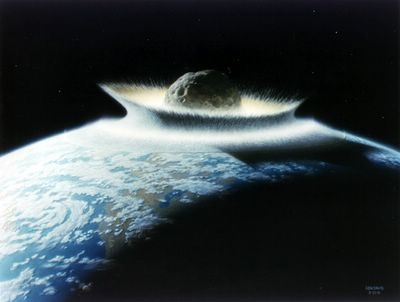Subject: Asia Ofices Closed
Singapore office will be closed noon Feb 8 - 11 for the Lunar New Year.
Shanghai and Beijing offices will be closed from Feb 9 to Feb 15 for Chinese Lunar Year.
Malaysia office will be closed too...... from the 9th Feb to 11th Feb to celebrate the Year of the Rooster!
Wishing all Chinese colleagues "Gong Xi Fa Cai."
Juliana D.
Singapore
Meanwhile, speaking of Asia, what a mess in Nepal! Last week, the king ended the country's 15-year experiment with democracy and took power for himself, imposing a state of emergency and suspending civil liberties, including freedom of expression. Those in politics and the news media feel particularly under siege.
In a televised address last Tuesday morning, King Gyanendra said he was taking power for three years because the political parties had failed to hold elections or bring Maoist rebels to peace talks. As he spoke, phone lines and Internet connections were being cut, political and student leaders were being detained and soldiers were arriving at news organizations' offices to take on their new role as censors.
Nepal now has no freedom of assembly, expression or opinion; no right to information, property or privacy; and no protection from preventive detention. The government has banned any criticism of the king's action for six months, and any public comment that could affect the morale of the security agencies.
Widespread international condemnation has done nothing to slow the arrest of political and student activists, with the military insisting that the detentions are necessary to prevent protests against the king. The new government acknowledges having 27 politicians under house arrest or in detention, but human rights activists say dozens more people, many of them student leaders, have "disappeared" into custody. Those who have not been arrested have gone underground or to India.
Sent: Mon 2/7/2005 12:58 PM
Subject: News
As some of you may know, a nephew of Mary's was killed last week in Iraq. As you can imagine, it is a very sad time for her and her family. She will be out of town and not working this week - and possibly some of next week.
Well, that certainly brings the war back home. This interoffice email at my place of work profoundly saddens me. Maybe I’ve been sheltered, but this is the first direct contact I’ve had with the impacts of that myopic war in Iraq. My heart goes out to Mary and her family – words cannot express the sense of loss they must feel.
Sent: Wed 2/9/2005 3:58 PM
Subject: Watch Out!
In 2029, an asteroid is expected to fly past Earth inside the orbits of some satellites, and will be visible to the naked eye. No other asteroid has ever been clearly visible to the unaided eye. The flyby will be visible from Europe, Africa and western Asia.
Two house-sized asteroids have made closer passes, but they were not visible without telescopes. The approaching asteroid is roughly estimated to be a little more than 1,000 feet wide. A stony meteoroid about 10 feet wide can produce an explosion of around 20 kilotons, similar to the bomb that flattened Hiroshima.
The rock, catalogued as 2004 MN4, was discovered last June. For a time, scientists said it had the highest odds of hitting Earth ever given to a space rock. Subsequent observations refined the future path and eliminated those odds for the 2029 flyby. It’d not expected to hit the Moon, either. On April 13, 2029, the asteroid will be about 22,600 miles from Earth's center. That is just below the altitude of geosynchronous satellites.
Of the ten known closest asteroid flybys, 2004 MN4 is by far the largest object. Only two have come closer, and they were only tens of yards wide. On average, one would expect a similarly close Earth approach by an asteroid of this size only every 1,300 years or so.
Were an asteroid the size of 2004 MN4 to hit Earth, it would cause local devastation and regional damage, similar to the Tunguska event, an aerial explosion that occurred in Siberia on June 30, 1908. The size of that blast was later estimated to be between 10 and 15 megatons, similar to the atomic bomb dropped on Hiroshima in 1945, and felled an estimated 60 million trees.

At around 7:15 AM, Tungus natives and Russian settlers in the hills northwest of Lake Baikal observed a huge fireball moving across the sky, nearly as bright as the Sun. A few minutes later, there was a flash that lit up half of the sky, followed by a shock wave that knocked people off their feet and broke windows up to 400 miles away. The explosion registered on seismic stations across Eurasia, and produced fluctuations in atmospheric pressure strong enough to be detected by the recently invented barographs in Britain. Over the next few weeks, night skies over Europe and western Russia glowed brightly enough for people to read by.
Had the object responsible for the explosion hit the Earth a few hours later, it would have exploded over Europe instead of the sparsely-populated Tunguska region, producing massive loss of human life.
In any event, since I am going to die on May 5, 2028, I will miss this event by one year. Also, the Inca calendar, developed upon their astronomical observations, ends in December 2028, meaning either that the world will have already ended before the asteroid approaches, or one set of calculations – either the Incan end-of-time or the modern asteroid flyby – is off by a few months.

No comments:
Post a Comment